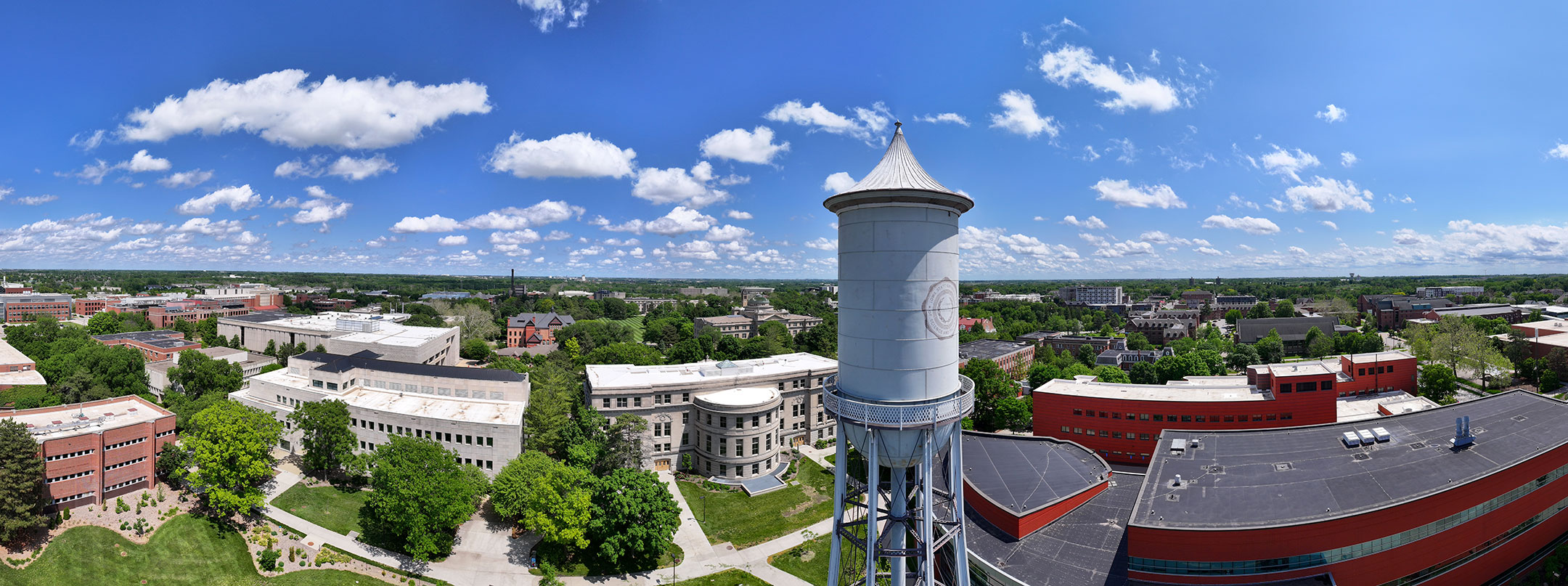Civil Engineering
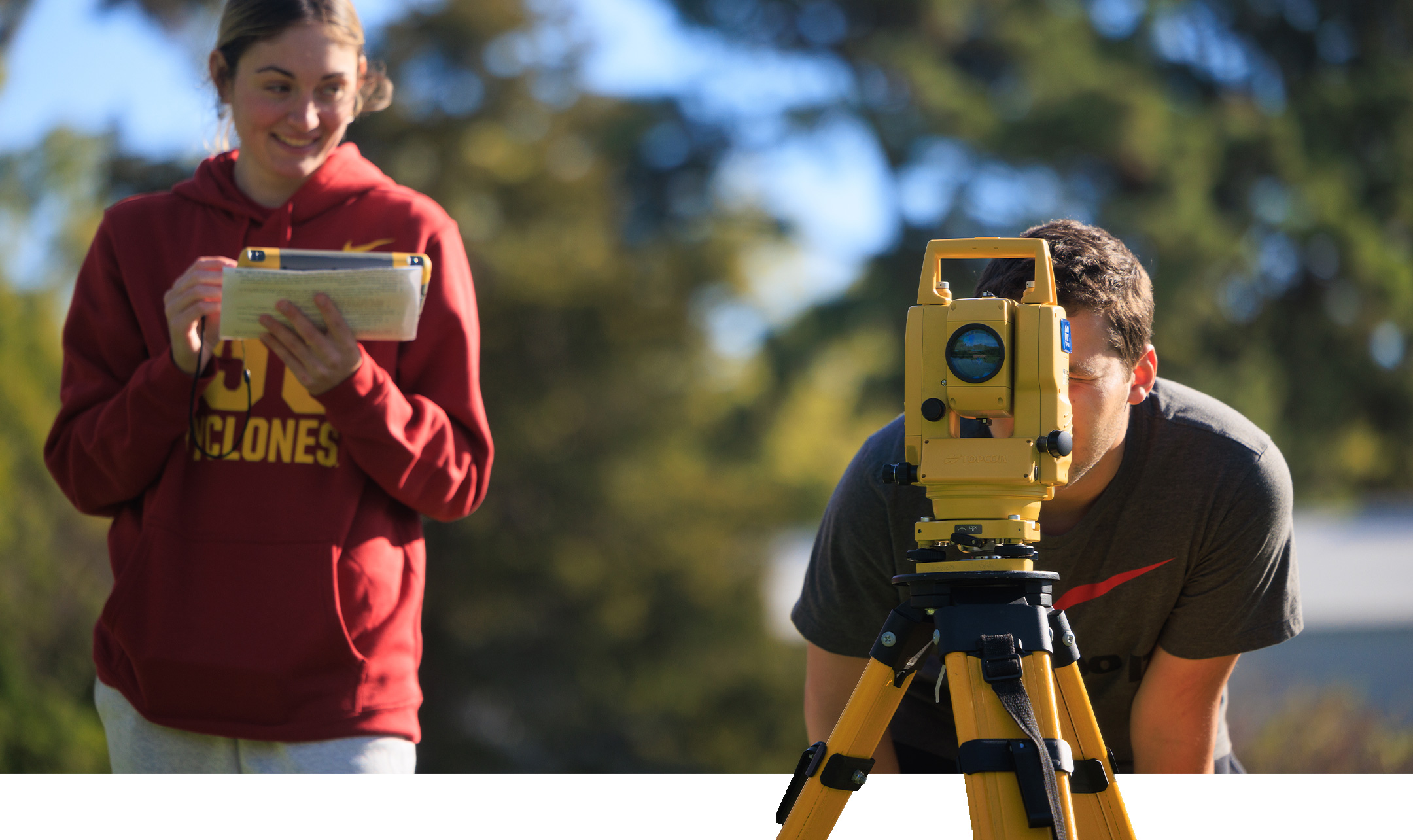
A Civil Engineer
in the Making
Civil engineers leave their legacy by designing resilient and sustainable infrastructure. Our graduates are key players in construction and infrastructure projects; making an impact through designing transportation systems, treatment plants, urban planning and more. Their work is service-oriented with global impact!
-
97%
employed or continuing education within six months of graduation
-
$71,000
average starting annual salary
-
$20/hr
average earnings for internships and co-ops
A competitive advantage
Iowa State Engineers get hired. And we’re here to help connect you to internships and full-time jobs.
- 1,400 employers recruit engineering students each year
- One-on-one career advising
- Networking opportunities
Community and Support
College is more than just academics. Join the community and you’ll find friends, new perspectives and experiences—and support.
- Learning communites
- Clubs and student organizations
- Support resources and groups
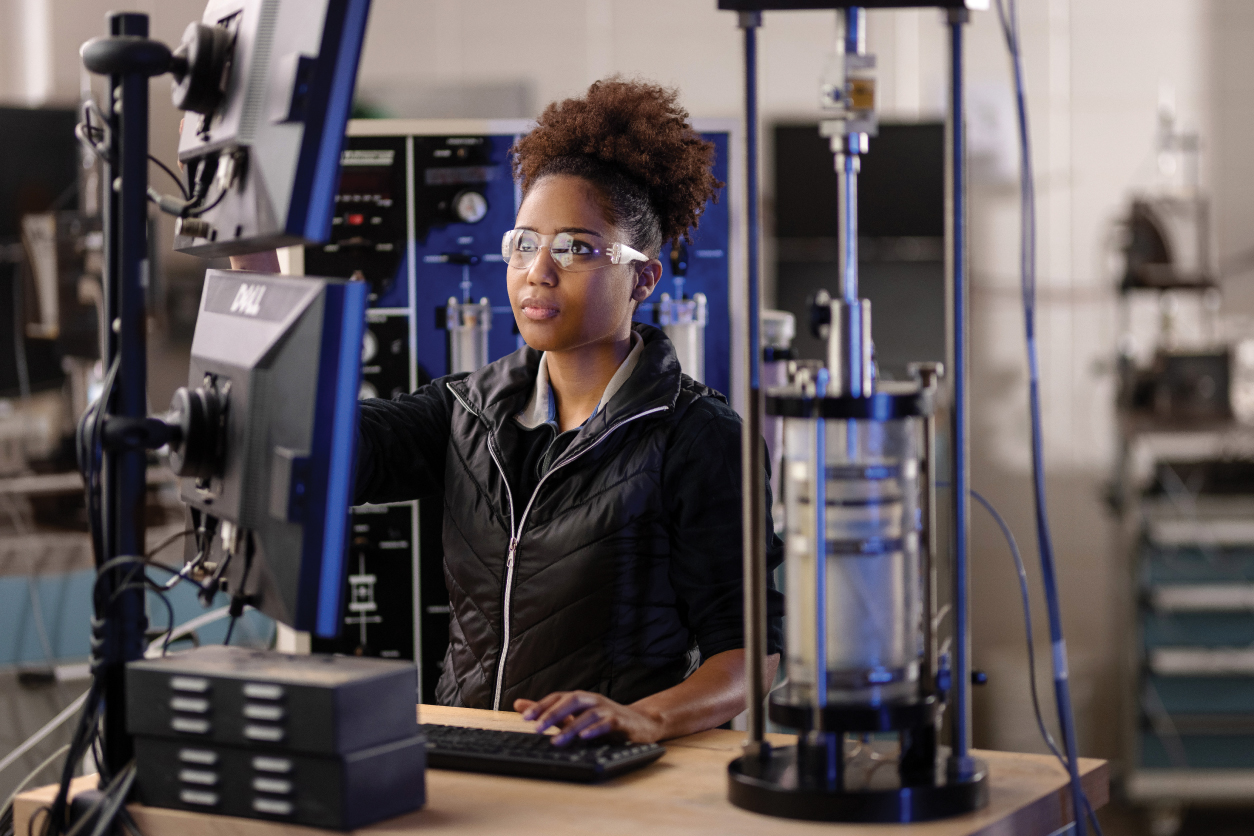
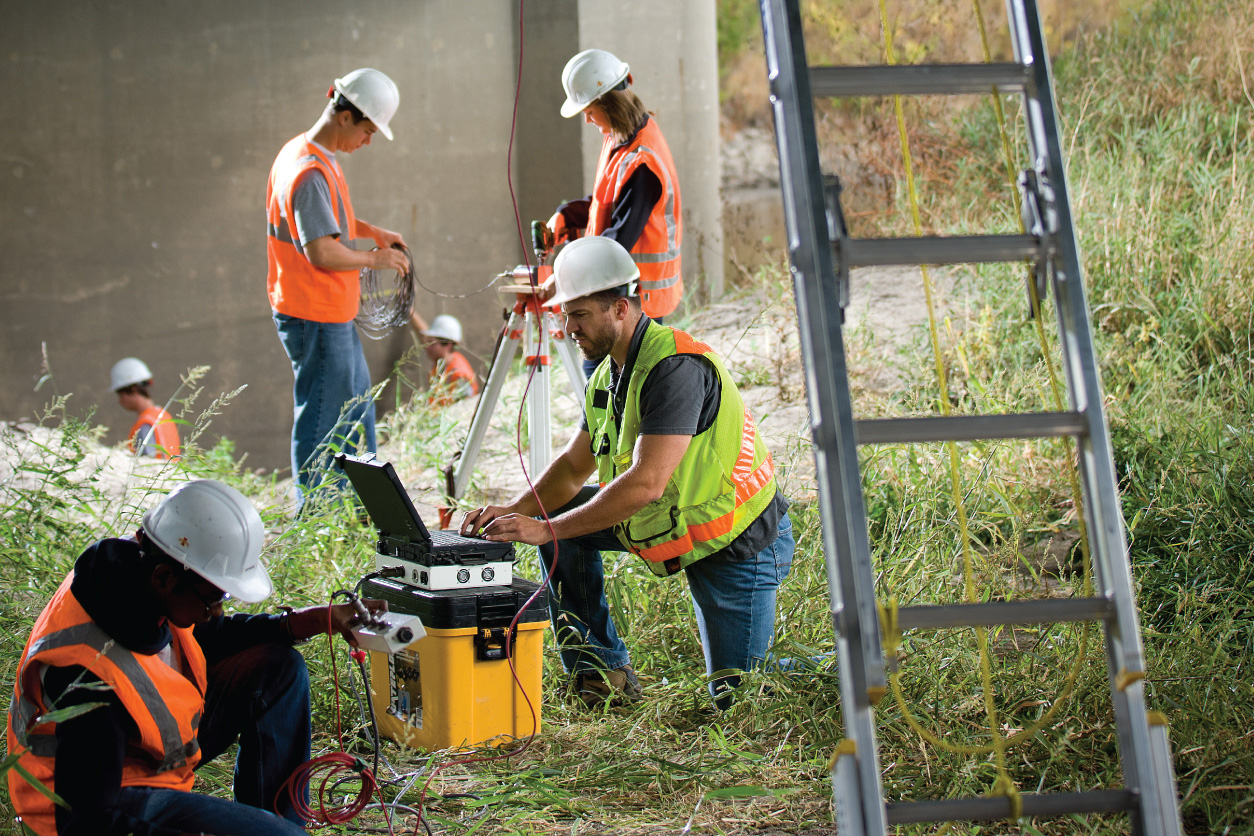
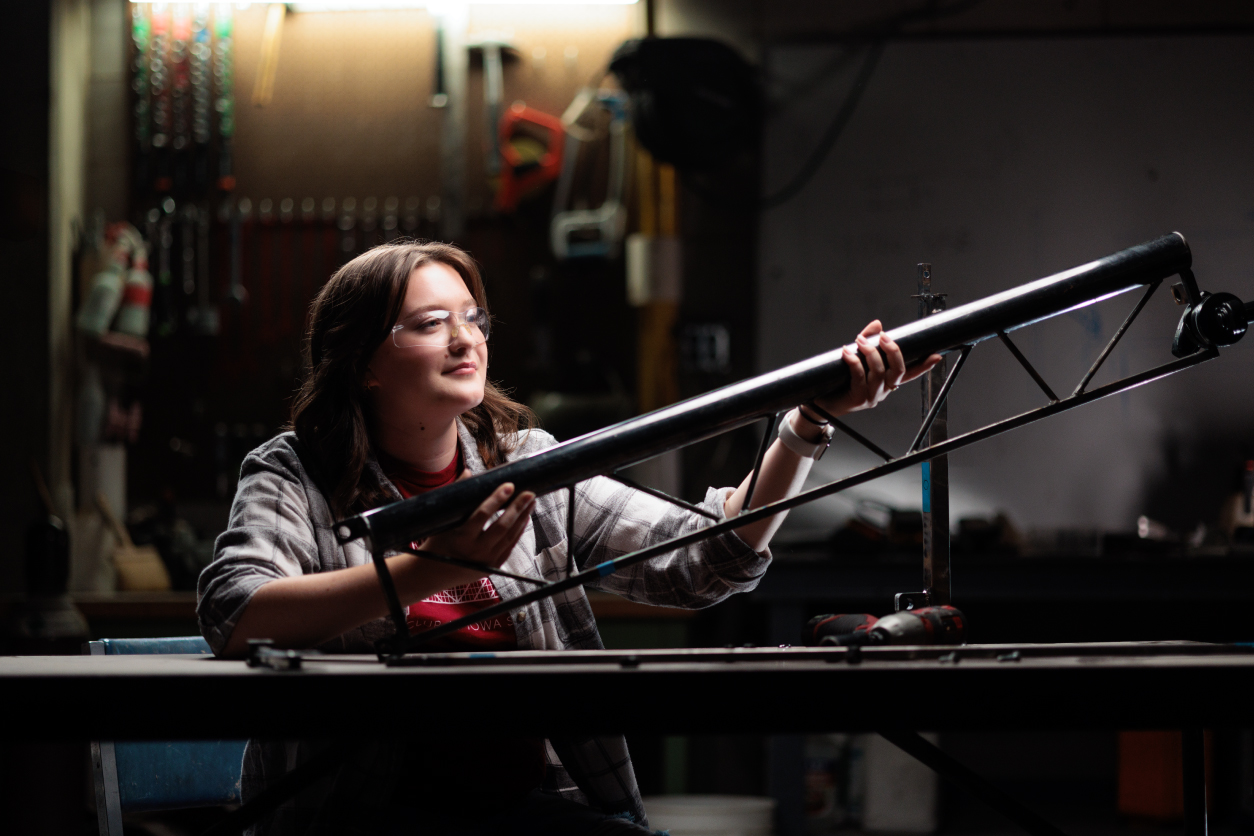

I developed new confidence in myself professionally and personally from being at Iowa State, as multiple classes push you to get out of your comfort zone and learn new methods and perspectives.
Sarah Mumm, civil engineering
What will I study?
Our program focuses on experiential learning with multiple hands-on experiences in our classes such as laboratories in soils, materials, environmental and surveying. We also offer options that make our students versatile in the job market. Select an emphasis in:
General civil engineering program—Four-year course plan
Develop projects below ground and determine ways to support structures on and in the ground. Create methods to stabilize soil conditions. Design structures that can withstand winds, extreme temperatures, hurricanes, earthquakes and other natural forces. Use big data to determine ways to meet the increasing travel needs of people, goods and materials on land, air and water. Help to develop and apply construction materials that are resilient and sustainable.
Environmental emphasis—Four-year course plan
Remove contaminants from water, reduce hazardous and solid waste volumes, eliminate air pollutants and develop groundwater supplies.
For the 2024-25 academic year, our civil engineering students preferred these minors:
Civil Engineering at Iowa State
Whatever your goals, your success is important to us! Our programs, labs, hands-on learning environments and facilities will give you a competitive advantage to address society’s greatest needs.
-
Integrated Curriculum
Integrated Curriculum
Our integrated curriculum combines class assignments, projects and team development with professional training in communication, ethics, accounting and management. Because each project is unique, we focus on problem solving based on in-depth studies of the environment, economics, materials and public needs. You will learn how to design solutions and analyze problems while writing proposals, working with subcontractors, planning, budgeting and mediating difficult situations.
-
Experienced Faculty
Experienced Faculty
Our faculty work with professionals in the field to research and develop:
- Tools for assessing the structural safety of materials used in buildings vulnerable to earthquakes, tornados and hurricanes
- GPS machine-integrated soil compaction technology
- Web-based roadway and airport weather observation systems
- Laser scanning and video technologies in the transportation industry
- Water and waste treatment strategies that provide a quality supply while extracting usable energy and reducing adverse effects on our environment
-
Real-World Learning Opportunities
Real-World Learning Opportunities
Co-ops and summer internships are the bridge between classwork and the professional practice of engineering. Most of our students take part in one or more internship or co-op opportunities prior to graduating. Every semester, our college hosts the largest career fair in the nation, putting you in direct contact with national and international industry leaders. You will hone the skills you learn in our hands-on labs and classes while gaining work experience.
Design, Connect, Build, Protect
Civil engineers leave their legacy by designing resilient and sustainable infrastructure that save and protect people while improving the quality of life. The work is service-oriented with global impact!
Each year, Iowa State awards millions of dollars in scholarships to students. Learn more about scholarship opportunities for:
More information about cost of attendance and other types of aid is available from the Office of Student Financial Aid.
Orientation is for students who have accepted admission to Iowa State and plan to enroll in an upcoming term. During orientation you will be provided the opportunity to:
- meet with an academic advisor
- register for classes
- obtain your ISU card
- become familiar with the campus
- increase knowledge of important policies and procedures
The basic program for engineering majors is a set of courses common to all engineering curricula. Students normally enroll in the majority of the basic program courses during their first year.
Learn more about new student orientation and the first-year engineering program.
- 8,225 engineering students (fall 2024), the largest college on the Iowa State campus, with the support of 500+ engineering faculty and staff dedicated to teaching, research and student achievement.
- 75% of Iowa State engineering students graduate with engineering work experience. Internships and co-ops, learning communities, study abroad, 90+ engineering organizations give the hands-on experience to help shape student success.
- Our bachelor of science degree programs are accredited by the Engineering Accreditation Commission of ABET.
- More college facts and highlights
What courses should I be taking in high school to prepare for a engineering degree?
Many high school students have access to college-level courses in high school. We know it’s in your nature to maximize your opportunities.
Learn more about what’s required, what’s recommended and what will transfer
What kind of a laptop computer will I need?
Iowa State University students are required to own or obtain a laptop computer appropriate to your discipline and program of study.
College of Engineering laptop computer recommendations
Can I study abroad?
Engineering International Programs can help you find study or work abroad experiences suited to your interests and goals. Expert staff can assist with course enrollment and transfers to keep you on track for graduation.
Learn more about Engineering International Programs
Are there ways to get practical work experience while at Iowa State?
Participation in a co-op or internship is a great way to gain real-world work experience. Students are employed by industry and government organizations in positions related to their major field of study. Unlike a typical part-time or summer job, an engineering co-op or internship must Involve the Practice of Engineering, and students must be paid. Co-ops and internships are not required by the college, but they are highly encouraged.
Learn more about Internships and Co-ops
There are also opportunities for students to work alongside professors doing research in areas related to their major field of study.
Learn more about Undergraduate Research Opportunities
Engineering Recruitment and Student Services
1300 Marston Hall, 533 Morrill Road, Ames, IA 50011
Phone: (515) 294-7186
Office Hours: Monday-Friday, 8 a.m.-5 p.m.
